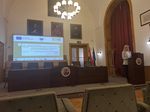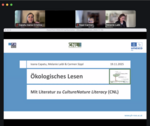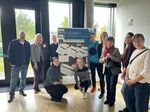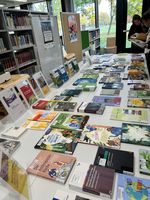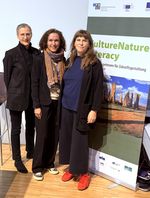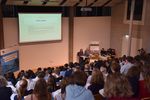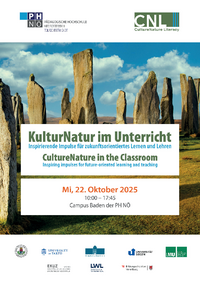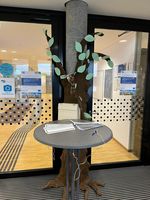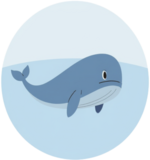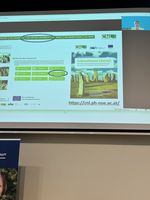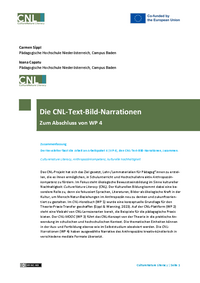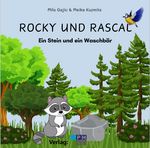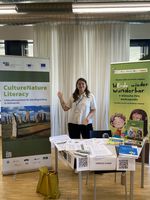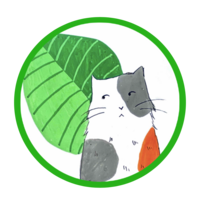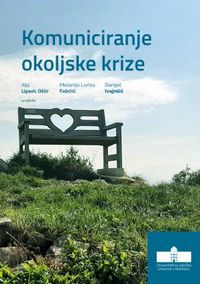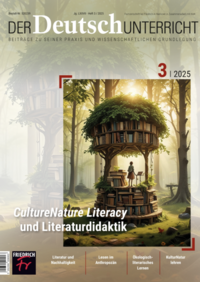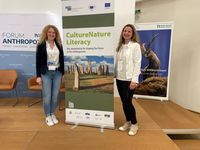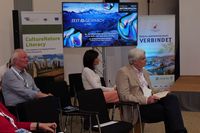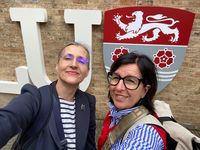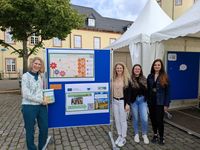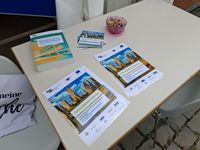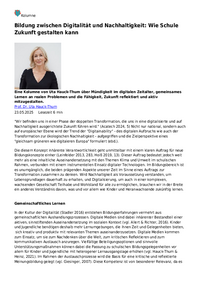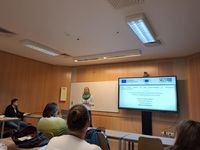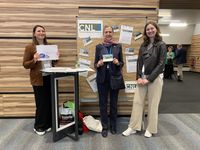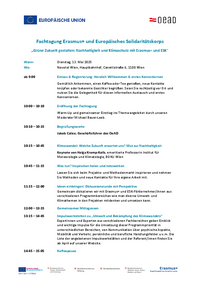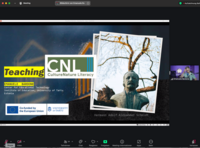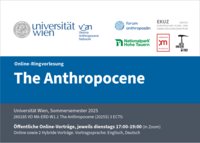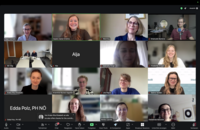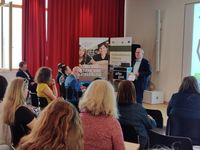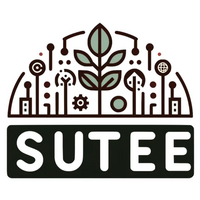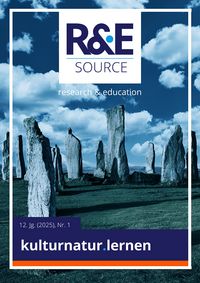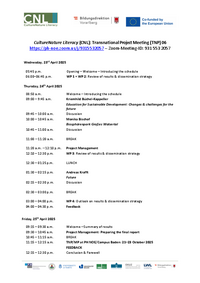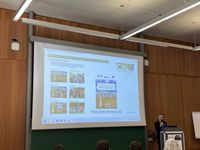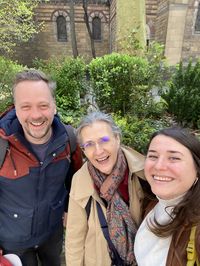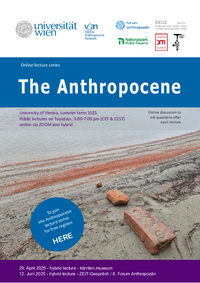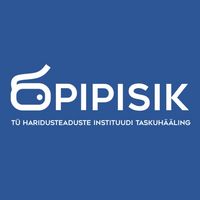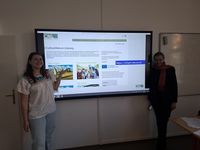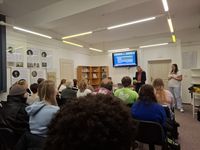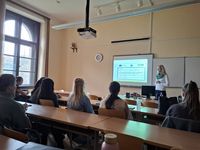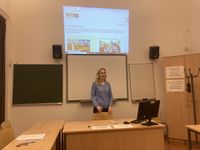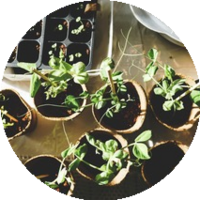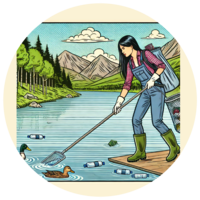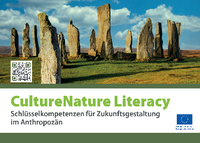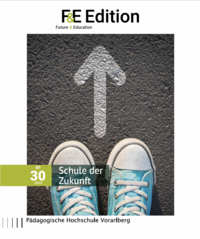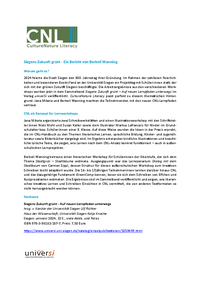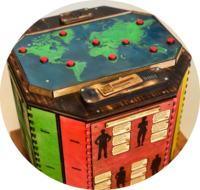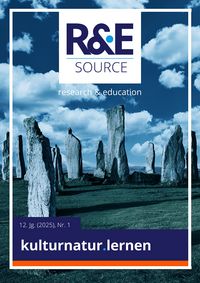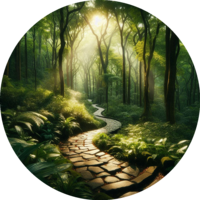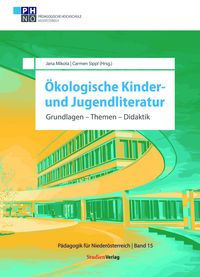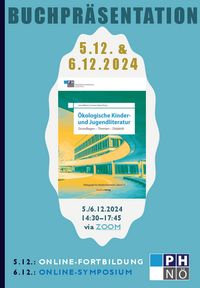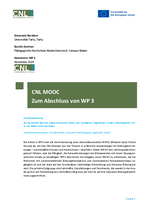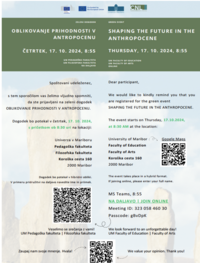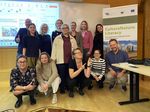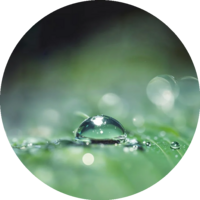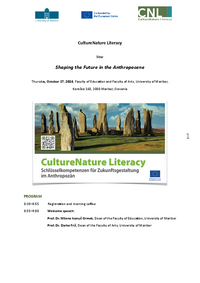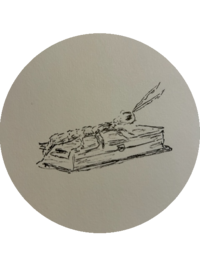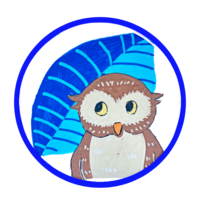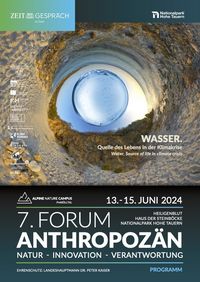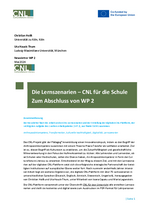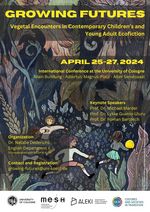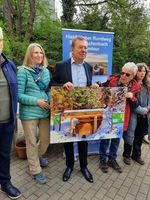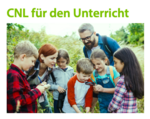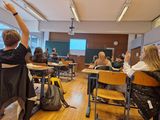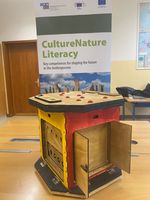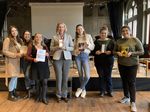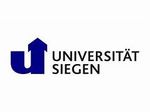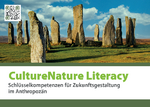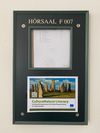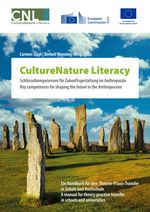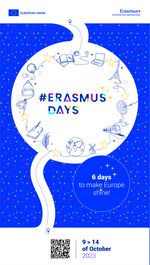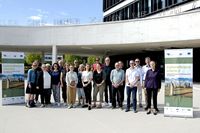Brotkrümelnavigation:
Main content:
CNL News
CNL at the „Socially responsible linguistics – Applied Linguistics Conference”
On 27 and 28 November 2025, the conference “Socially responsible linguistics – Applied Linguistics Conference” took place at Eötvös Loránd University in Budapest. As part of the international conference, which was attended by researchers and students from various linguistic disciplines, Gabriella Perge presented the CNL project in her talk A kulturális tudatosság fejlesztése a német mint idegen nyelv órán. Egy nemzetközi projekt eredményei. The presentation provided an in-depth discussion of the project’s aims and outcomes.
CNL at the teacher training workshop “Ecological Reading”
As part of the teacher training workshop “Ecological Reading,” on november 19th 2025, the CNL project had the opportunity to present its work to around 20 teachers from various school levels and types. We were especially delighted to receive support from author Melanie Laibl, who presented her works.
In three engaging workshop sessions, we explored the texts from the CNL Reader together. The participating teachers were able to get creative themselves and try out new approaches to ecological reading.
CNL TNP 7 at the University College of Teacher Education Lower Austria
From October 21 to 23, 2025, the seventh and final Transnational Project Meeting (TNP) of the CNL project took place at the University College of Teacher Education Lower Austria. During this meeting, all project partners came together to reflect on the project results and to discuss further steps for dissemination and ensuring the sustainability of the project outcomes.A particular highlight was the keynote speech by Dr. Denise Sutton, Associate Professor and Co-Director at the Fashion Institute, City Tech – City University of New York, entitled “Innovations in Sustainable Beauty & Apparel: The Impact of Social Movements on Business Practices.” In addition, the group had the opportunity to take part in a UNESCO World Heritage Walk in Baden, guided by Alexandra Harrer, Site Manager of the UNESCO World Heritage “Great Spa Towns of Europe.” This excursion offered fascinating insights into the cultural heritage of the region and provided a memorable conclusion to the meeting.Furthermore, a thematic book display related to the project topics was prepared in the library of the University College of Teacher Education Lower Austria. To the report on "Bildung im Dialog"
Multiplier Event – October 22, 2025 at the University College of Teacher Education Lower Austria
On October 22, 2025, the final event of the Erasmus+ project CultureNature Literacy (CNL) took place at the Baden Campus of the University College of Teacher Education Lower Austria (PH NÖ). Under the leadership of PH NÖ, the three-year project produced a wide range of didactic impulses for cultural sustainability and an education that promotes future-oriented thinking in the Anthropocene. Vice-Rector Edda Polz opened the event with a quote from John Dewey, emphasizing the importance of collaborative research and discovery. Berbeli Wanning and Jana Mikota (University of Siegen) presented Books that Stir Ecological Awareness and introduced the emerging research field of Plant Studies. Author Melanie Laibl discussed the creation of her non-fiction picture books and her creative collaboration with illustrators in a studio talk with Carmen Sippl. In the afternoon, workshops offered practical inspiration for classroom practice – from drama pedagogy with Ioana Capatu (PH NÖ) and future visions inspired by picture books in the Futures Stories Lab with Carmen Sippl (PH NÖ). The interconnection of social and technological aspects in education was explored in the workshop Envisioneer! with Emanuele Bardone (University of Tartu), while Water Poetry was experienced during a literary-ecological walk along the Badener Mühlbach with Anke Kramer (Droste Research Center of the LWL Literature Commission for Westphalia).
CultureNature in the Classroom – Inspiration for Future-Oriented Teaching and Learning October 22, 2025 | Campus Baden
On October 22, 2025, Campus Baden will host the inspiring event “KulturNatur in the Classroom”, focusing on innovative approaches to future-oriented teaching and learning through the lens of literature, nature, and sustainability.
The day will begin with two thought-provoking keynote talks:
-
Berbeli Wanning & Jana Mikota will engage in a dialogue on books that "shake us up ecologically" under the title “The Goal of Learning Aligns with Literature and Nature.”
-
Reinhold Leinfelder & Melanie Laibl will explore the interplay of expertise and storytelling in their keynote “Culture Is in Our Nature.”
Participants can also look forward to a selection of four interactive workshops – some on-site, some hybrid – offered in both German and English.
Registration:
-
For teachers via PH Online
-
For external participants via a registration form
CNL Word Worlds – A Participatory Event for the Erasmus Days 2025
As part of the Erasmus Days 2025, which will take place from 13 to 18 October, the University College of Teacher Education Lower Austria (PH Niederösterreich) invites everyone to take part in a creative participatory event entitled “Word Worlds.”
With this interactive activity, we aim to highlight the diversity of experiences among our students, lecturers, and researchers in the fields of culture, nature, and education.
Learning scenario of the month
October 2025
This section is published once a month by a member of the CNL project and presents one of the learning scenarios developed by the project partners.
October 4 is World Animal Day!
All the more reason to dedicate time in class to the diverse relationships between humans and animals. In his Learning Scenario of the Month “How We Imagine Whales,” Christian Hoiß places the sperm whale at the center of literature and media. Hardly any other animal species so clearly reveals the consequences that both hunting and protection of animals can have.The learning scenario raises awareness of how media and literary representations of animals—especially whales—strongly shape our thinking about them and our ideas of what they are. For a comprehensive understanding of whales, developing CultureNature Literacy is therefore highly relevant.
CNL at "25 years of the ÖKOLOG Network – A Journey Through Time"
At the anniversary celebration “25 Years of the ÖKOLOG Network – A Journey Through Time”, Carmen Sippl delivered an inspiring keynote. On this occasion, the CNL project was also presented and an invitation to the upcoming Multiplier Event was extended. The celebration was a great success and offered many exciting insights. Numerous teachers, school leaders, students, PH staff, researchers, and distinguished guests took the opportunity to exchange ideas and network.
Newsletter at the end of Work Package 4
Work Package 4 comprised the design of CNL text-image narrations – for this purpose, selected narratives of the Anthropocene were creatively and artistically translated into various intermedial formats. The specific aim of this work package was to identify suitable narratives of the Anthropocene and to creatively and artistically translate them into text-image narrations, in order to foster Anthropocene literacy and cultural sustainability through cultural education.This work package builds on the contents of the CNL manual. In addition, it contributed further learning scenarios for the CNL platform and examples for chapters in the CNL MOOC. You can find the newsletter on the completion of this work package here.
Learning Scenario of the Month
September 2025
This section is published once a month by a member of the CNL project and presents one of the learning scenarios developed by the project partners.
Rocky and Rascal – A Stone and a Raccoon. Learning Scenario by Mila Gajic and Meike Kuzmits
Autumn is the time to reflect on transience and death. This sensitive subject of nature, which can be difficult for children, is addressed in the learning scenario Rocky and Rascal – A Stone and a Raccoon, based on Brendan Wenzel’s interactive picture book of the same name (2019), by Mila Gajic and Meike Kuzmits. The topic is handled with sensitivity, occasional humor, and pedagogical skill. In the picture book, the two realms of nature – the animate and the inanimate – are brought together: Rascal, a two-year-old raccoon, encounters a stone named Rocky, which he uses as a table for his meals, while also telling the stone about his countless adventures. Rocky is introduced as an anthropomorphized non-living being to make it easier for children to perceive inanimate nature as part of their own lives. Rocky lies around, in true stone-like fashion, letting days and seasons pass by motionless, observing the changes of the living world and admiring its diversity. Through Rascal’s encounter with Rocky, children gain a new perspective on the stone: Rocky has his own thoughts and feelings and is happy to go beyond his role as mere observer and establish direct contact with the living world. One day, however, Rascal must say goodbye to Rocky, for he has grown old and his life is coming to an end. Rocky feels sorrow, yet knowing that death is inevitable for living beings, he comforts himself with the memories of the wonderful times he shared with Rascal—memories that remain forever. For a stone like Rocky, symbolizing the inanimate world, “forever” is possible, since he does not die. The learning scenario develops the key aspects of this unusual friendship between the living and the non-living in a clear, step-by-step manner. The accompanying activity booklet ensures that children understand the text and can work through it largely on their own. To help them cope with the theme of transience and death, it offers the opportunity to continue the story from Rocky’s perspective or to add yet another, personal perspective. In this way, children learn with empathy that while the mortality of living beings is a law of nature, it does not mean the end of their bond with nature nor the loss of important human values such as friendship.
CNL Presented at the Induction Week at the University College of Teacher Education Lower Austria
As part of the induction week at the University College of Teacher Education Lower Austria, the CNL project was presented. A total of 350 new teachers are currently participating in the introductory event to prepare for the upcoming school year.
The UNESCO Chair at the University College of Teacher Education Lower Austria also had a stand and took the opportunity to introduce new teachers to CNL learning scenarios and CNL narratives.
Learning scenario of the month
August 2025
This section is updated monthly by a member of the CNL project and presents one of the learning scenarios developed by the project partners.
The ORF recently reported (link) that a plant-based diet can reduce the risk of disease. In this context, the learning scenario by Jan-René Schluchter, “Tiere als Freunde, nicht als Essen,” is particularly relevant.
This scenario encourages reflection on societal human-animal relationships, with a special focus on forms of carnism, using the film Oink (Halberstad, Mascha (2022): Oink. Viking Film/A Private View.) as a case study. The goal is to analyze the human-animal relationships depicted in the film and to explore the practices of killing and consuming animals, as well as alternatives to these practices.
Monograph "Komuniciranje okoljske krize"
A monograph on climate communication was recently published at the University of Maribor. In her contribution titled "Komuniciranje trajnostnosti na primeru ekoloških turističnih kmetij v Sloveniji", co-editor Alja Lipavic Oštir also highlights the CNL project.
CultureNature Literacy in the spotlight of "Der Deutschunterricht"
This summer, issue no. 3/2025 of the specialist journal Der Deutschunterricht was published, dedicated entirely to our topic: CultureNature Literacy und Literaturdidaktik. We are thrilled about the many wonderful contributions, to which our project partners have made significant contributions.
Berbeli Wanning from the University of Siegen authored several articles, including „Die Zukunft ist jetzt. Wie CultureNature Literacy den Deutschunterricht verändern kann“, as well as, together with Jana Mikota, an interview with the author Cornelia Funke on „Grüne Gesellschaft und das Alphabet der Natur“. Additionally, Christian Hoiss from the University of Cologne enriched the issue with his article „Cultural Animal Studies. Perspektiven für den BNE-orientierten Deutschunterricht“.
Further information and options to purchase this issue or subscribe to the journal can be found here
Learning scenario of the month
July 2025
This section is updated monthly by a member of the CNL project and presents one of the learning scenarios developed by the project partners.
July, the height of summer in Central Europe, especially invites city dwellers to dream of an escape to the countryside — a traditional “Sommerfrische” retreat. In line with this theme, Ilona Feld-Knapp and Gabriella Perge place the contrast between urban and rural life at the center of their learning scenario “Flucht aufs Land” (Escape to the Countryside). Using a novel as a basis, students explore the different living environments of the city and the countryside in depth and reflect on their own ideas and longings.
CNL Culture Nature Literacy: Forum Anthropocene 2025 – Spotlight on Artificial Intelligence
New Impulses for Climate, Education, and Society
Under the guiding theme “AI – Alternative Intelligences,” the 8th Forum Anthropocene brought together international experts from June 12–14, 2025 in the Hohe Tauern National Park to explore the role of Artificial Intelligence (AI) in the context of climate ecology, education, and societal responsibility. The thematic framework—also anchored in the CNL perspective (Culture Nature Literacy)—emphasized the necessity of considering technological innovation within cultural and ecological contexts.
Highlights:
-
In the ZEIT discussion, climate researcher Sebastian Lehner, IT law expert Eva Vonau, and futurist Matthias Horx debated the opportunities and risks of AI.
-
Katja Wengler highlighted education as the key to a responsible digital transformation.
-
The Climate Workshop addressed, among other topics, the significance of Culture Nature Literacy in the Anthropocene.
-
Artistic contributions—such as by Ursula Endlicher—opened new perspectives on ethics and AI.
-
The “Philosophical Breakfast” with Liz Hirn focused on questions of freedom and responsibility.
The Forum Anthropocene sees itself as an interdisciplinary platform for dialogue on the major ecological, technological, and societal challenges of our time. Each year, it brings together experts from science, politics, education, art, and civil society in Mallnitz to develop sustainable solutions for the age of the Anthropocene.
The next Forum will take place from June 12–14, 2025 in Heiligenblut am Großglockner.
CultureNature Literacy meets Visual Pedagogies
As part of the 8th International Conference of the Association for Visual Pedagogies entitled “Imagining Sustainable Developments, Discussing Education Futures” from June 11 to 13, 2025 at Lancaster University (UK), the UNESCO Chair at the University College of Teacher Education Lower Austria presented the Erasmus+ project CultureNature Literacy (CNL). Carmen Sippl, Ioana Capatu (virtual) and Karin Tengler presented the concept of CultureNature Literacy(CNL) as an educational approach in the Anthropocene as part of their panel “CultureNature Literacy: Learning and Teaching Cultural Sustainability in the Anthropocene”. They use literary, drama and media pedagogical methods to make complex ecological relationships understandable and tangible. These visual forms of representation—for example through narrative, performative, artistic and multimedia forms of expression—were presented as examples.
To the report on "Bildung im Dialog"
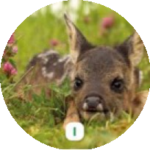
Learning scenario of the month
June 2025
This section is updated monthly by a member of the CNL project and presents one of the learning scenarios developed by the project partners
The learning scenario “Mythos Bambi” by Magdalena Karan analyzes Felix Salten’s work with a focus on representations of nature and culture, human-animal relationships, gender roles, and the creation of myths. It encourages learners to think critically about these topics and combines literary analysis with ecological and societal reflection.
The scenario aims to motivate learners to explore and question the multifaceted aspects of Bambi in a critical way.
“Mythos Bambi” provides a valuable opportunity to reflect on the intersections between culture and nature and to examine one’s own values and views regarding the environment, society, and gender roles. It promotes critical thinking and raises awareness of the complex relationships between humans and nature.
HRK Workshop on ESD, Climate Change, and Mental Health
The German Rectors' Conference (HRK) is a voluntary association representing 271 member universities, where around 90 percent of all students in Germany are enrolled. It describes itself as the voice of the universities in dealings with politics and the public, making it the central forum for joint opinion and decision-making within the higher education system. The HRK addresses a wide range of topics, including sustainability, innovation, and knowledge transfer—issues that shape the role and responsibilities of universities in both science and society. Additionally, the HRK is involved in the development of foundational principles and standards within the German education system.
There are at least two compelling reasons why this institution should take a closer look at the CNL project: First, it is innovative and international, focused on transfer with potential impact on the education system; second, it is dedicated to cultural sustainability—an emerging field of research with significant future relevance for universities.
Click here to read the full report
Open University Day in Siegen
On May 24, 2025, the Open University Day took place at Schlossplatz in Siegen. During this event, the University of Siegen presents the full range of its research and teaching offerings, as well as its services, to the interested public. Held in a central square in the city and surrounded by an impressive 18th-century castle used by the university, the event was well attended despite the cool but dry weather. This provided the Literature Didactics team with the opportunity to present the CultureNature Literacy project to the public.
Click here to read the full report
Education Between Digitality and Sustainability: How Schools Can Shape the Future – Prof. Dr. Uta Hauck-Thum on CNL
In her latest column for campus schulmanagement magazine, Prof. Dr. Uta Hauck-Thum introduces CNL. Titled "Education Between Digitality and Sustainability: How Schools Can Shape the Future," she explores how schools can create spaces for collaborative, future-oriented learning today. The column is aimed at educational professionals and school developers, illustrating the transformative educational impulses CNL provides. We are excited that the project is further contributing to the educational policy discourse. The column is available online at campus-schulmanagement.de.
CNL at the Ungarische Germanistenkonferenz
On May 22, 2025, the conference "Discover, Explore, Teach – From Theory to Practice. Hungarian German Studies Conference (Ungarische Germanistenkonferenz)” took place at Károly Eszterházy Catholic University in Eger. In the didactics section, Gabriella Perge presented the CNL project in her lecture "Promoting Cultural Sustainability in Foreign Language Education: Experiences from an International Project." The presentation addressed, among other things, the objectives, activities, and outcomes of the project.
CNL at the Erasmus+ and ESK Conference on May 13, 2025 in Vienna
On May 13, 2025, the CNL team of the University College of Teacher Education Lower Austria took part in the Erasmus+ and ESK Conference in Vienna. This year's event focused on the program priority “Environmental protection and the fight against climate change.”
As part of the Project and Methods Market, "CultureNature Literacy" was presented as an example of innovative educational work in the context of cultural sustainability and climate action.
The conference also provided a valuable opportunity for intensive exchange with numerous participants from various Erasmus+ projects. In addition to inspiring project presentations during the Project and Methods Market, a lively dialogue emerged with experts in the field of education. The keynote by Helga Kromp-Kolb was a special highlight.
The report on "Bildung im Dialog".
CNL at the Online Lecture Series "The Anthropocene" at the University of Vienna
As part of the lecture series "The Anthropocene" at the University of Vienna, Professor Emanuele Bardone gave an overview of the ERASMUS+ CNL project. Bardone focused in particular on the MOOC (its structure and content) and the use of Custom ChatGPT as an application platform for teachers and students. Especially interesting were the insights into how the Custom ChatGPT was configured and how it can support teachers and students in their reflection processes.
Here is the link for the "Forum Anthropozän"
Learning scenario of the month
May 2025
This section is updated monthly by a member of the CNL project and presents one of the learning scenarios developed by the project partners
In May, trees reveal their most colorful side – including the urban tree, which brings a touch of vibrancy to the otherwise grey cityscape, at least during this spring month. Fittingly, the learning scenario "Im Dialog mit dem Stadtbaum. Marion Poschmann, Laubwerk“ von Carmen Sippl explores the perception of the tree as more than just an aesthetic phenomenon. Through reading and writing, learners engage with the literary essay, becoming sensitized to nature’s aesthetics and urban ecology while developing CultureNature Literacy.
7. Lecture of the Forum Anthropocene Lecture Series
„Two tools for learning (about) CultureNature literacy. The CNL MOOC and the CNL CustomGPT"
On Tuesday 06/05/2025 from 5pm - 7pm, the 7th lecture of the of the Forum Anthropocene Lecture Series on the topic "Two tools for learning (about) CultureNature literacy. The CNL MOOC and the CNL CustomGPT" takes place on Zoom. Dr. Emanuele Bardone from the University of Tartu in Estonia introduces two innovative tools to explore CultureNature Literacy (CNL): the CNL MOOC and the CNL CustomGPT. These tools are designed to support pre-service teachers, educators, and anyone interested in deepening their understanding of cultural sustainability and envisioning hopeful futures. Both the MOOC and the CustomGPT were developed as part of the CultureNature Literacy (CNL): Curricular Key Competences for Shaping Europe’s Future in the Anthropocene project, funded by Erasmus+ (KA220-HED).
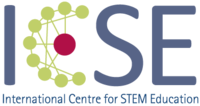
Unterrichtsmaterialien des International Centre for STEM Education
The International Centre for STEM Education has developed exciting materials for various aspects of STEM teaching, including a look at socio-scientific issues (SSI). We are delighted about the Centre's interest in our project and would like to refer interested parties to the wealth of teaching concepts that have been developed as part of their Erasmus project. The common focus on sustainability and the problems of our time are a valuable basis for the classroom of the future.
6th Transnational Project Meeting
From April 23 to 25, 2025, the 6th Transnational Project Meeting took place online – organized by the Department of Education of Vorarlberg. Project partners from Estonia, Germany, Austria, Slovenia, and Hungary came together virtually to discuss strategies for further development and refining the project’s goals.
In addition to the productive working sessions, the meeting offered inspiring impulses:
Dr. Kriemhild Büchel-Kapeller spoke on Education for Sustainability and Transformation.
Monika Bischof and Matthias Merta presented the Biosphere Reserve Großes Walsertal as a hands-on example of sustainable regional development.
Finally, Dr. Andreas M. Krafft concluded with a moving keynote entitled Our Hopes, our Fears, our Future, encouraging participants to actively shape the future.
CNL at MINT Conference in Vorarlberg
On April 23, 2025, the MINT conference was held at the St. Arbogast Education Center near Götzis, Vorarlberg, with around 80 educators from primary and secondary schools, as well as the upper secondary level, in attendance. The participants took part in eight workshops covering topics such as MINT and bionics, digitalization, electrical engineering, and artificial intelligence, gaining insights into future developments in nature and technology. CNL was also introduced to the attendees, sparking interest. In addition to the workshops, three keynotes provided a broader perspective on current and future trends in MINT education, and participants received a link to the CNL website for further information.
Showcasing Urban Trees for Environmental Education with IoT Technology
We are very excited to have made this valuable connection with the SUTEE project . The exchange provides an excellent opportunity to discuss shared goals in sustainable education and strengthen our collaboration. It is inspiring to work towards a more sustainable future.
Issue kulturnatur.lernen about CultureNatureLiteracy published in the web-journal R&E-Source!
On 15 April 2025, the issue of the web journal R&E-Source with the topic kulturnatur.lernen was published. Exciting topics from the CNL project were discussed and made accessible to a broad public. In their article, Ioana Capatu and Carmen Sippl discuss human-nature relationships in a change of perspective and the contribution of literature to a change of perspective. Sabine Seidler and Magdalena Karan link the relevance of CNL and national parks, Corinna Lüdicke discusses nature in ecological children's and youth literature and Gabriella Perge addresses CNL in foreign language teaching. Jana Mikota's article on the connection between futures and children's and young adult literature and Berbeli Wanning's article on Anthropocene literacy also discuss important aspects of CultureNatureLiteracy. In the science education section, Uta Hauck-Thum, Christian Hoiß and Elena Endres look at the transformative potential of learning scenarios to promote CNL and Alja Lipavic Oštir discusses Anthropocene Literacy in interdisciplinary teaching. Overall, many important and exciting aspects of the project were presented in this issue of the journal. A big thank you to all those who contributed to its creation and a warm invitation to all interested readers!
Transnational Project Meeting in Vorarlberg
From April 23 to 25, 2025, the 6th Transnational Project Meeting will take place online, organized by the Directorate of Education Vorarlberg as part of the CNL project.
The focus of the meeting is on exchanging ideas and advancing the project together. The program is enriched by three inspiring keynotes: Kriemhild Büchel-Kappeller will speak about “Education for Sustainable Development – Changes & Challenges for the Future,” Monika Bischof will provide fascinating insights into the Biosphere Reserve Großes Walsertal, and Andreas Krafft will explore the topic of “Future.”
CNL at the Future Fiction Makerspace & Networking Meeting in Cologne
From April 2 to 4, 2025, the Future Fiction Makerspace took place at the University of Cologne. Within the framework of so-called “laboratories,” participants explored transformative, inclusive, digital, and culturally sensitive approaches to literary education in order to co-create future-oriented learning environments.
On April 3, Carmen Sippl delivered a Keynote Inspiration titled “Method or Mindset? Some Thoughts on Teaching Futures Literacy in Literary Education,” in which she also introduced the CultureNature Literacy (CNL) project.
On April 4, she led the “Futures Stories Lab,” where participants collaboratively imagined and created narrative visions of possible futures.
As part of the Makerspace, a networking meeting with Christian Hoiss (LMU Munich) also took place to foster academic exchange and future collaboration.
Learning scenario of the month
April 2025
This section is updated monthly by a member of the CNL project and presents one of the learning scenarios developed by the project partners
In school education, fostering students' creativity plays an important role across all subjects. There are various ways and possibilities to support this development. The learning scenario "#CNL-Fotochallenge" by Ioana Capatu also holds great potential in this regard.
This scenario enables students to photograph their learning environment from the unusual perspective of non-human beings and create Instagram stories from these images. In doing so, students experience a shift in perspective through photography and can immerse themselves in the viewpoint of nature.
This understanding opens up the opportunity to interact more mindfully with the environment and nature, and to empathize with other living beings. Working with this learning scenario can also promote students' awareness of sustainability, with the change of perspective on social media serving as a supportive tool.
CNL at the Anthropocene Lecture Series 2025
On May 6, 2025, Emanuele Bardone from the University of Tartu (Estonia) will present the CNL project as part of the Anthropocene Lecture Series. His talk is titled: "Two tools for learning (about) Culture/Nature literacy. The CNL MOOC and the CNL CustomGPT".
If you are interested in learning more about innovative approaches to fostering culture and nature literacy — and how digital tools like the CNL MOOC and CNL CustomGPT can support this — you can register for the Anthropocene Lecture Series 2025 here. The program is available here.
Podcast Recommendation: "Õpipisik" – Learning and Teaching More Consciously
The podcast "Õpipisik" from the Institute of Educational Sciences at the University of Tartu offers fascinating insights into current educational topics. With research-based information, the podcast demonstrates how learning and teaching can be approached more consciously and meaningfully.
In a recent episode, doctoral students Marie Johanna Univer and Liisi Pajula share their experiences and thoughts on the importance of education for sustainable development and its implementation in schools. They also discuss the CNL project.
You can listen to the podcast here.
CNL Workshop and Lecture at the University of West Bohemia in Pilsen
On March 18, Carmen Sippl and Ioana Capatu from the University College of Teacher Education Lower Austria conducted a workshop on the topic of "Sustainability and Literature" at the Department of German Language (Katedra německého jazyka) at the University of West Bohemia in Pilsen. During the workshop, they introduced the CNL project and guided students in exploring various non-human perspectives through narrations by author Melanie Laibl.
In the evening, Carmen Sippl also presented the CNL project in a public lecture at the Austrian Library in Plzeň. The audience engaged deeply with thought-provoking questions such as: What is nature to us? and What are we to nature?
CNL at the University of Debrecen
On March 13, 2025, Gabriella Perge presented the CNL project to future teachers at the Department of German Studies at the University of Debrecen. In the context of a lecture, she provided an overview of the project. This was followed by a workshop in which the participating students analyzed and examined several learning scenarios.
CNL at the Meeting for Training Teachers & Mentors at Eötvös Loránd University
On March 12, 2025, a meeting for training teachers and mentors took place at the Department of German Studies at Eötvös Loránd University. As part of the professional exchange, the CNL project was also presented by Gabriella Perge. She provided an overview of the entire project to her colleagues. The presentation also discussed how learning scenarios can be used in German as a Foreign Language (DaF) teaching and how teachers can support interns in working with learning scenarios in foreign language teaching.
Learning scenario of the month
March 2025
This section is updated monthly by a member of the CNL project and presents one of the learning scenarios developed by the project partners
As spring approaches and greenery returns and grows, it’s time to look at how and where we grow our food. This is also the question the CNL learning scenario of the month "Garden Memory Book" by Jana Ambrozic-Dolinsek deals with: how do we grow our own food. The learning scenario invites learners to get their hands dirty and recommends practical gardening activities that also help to bring food production closer to home.
CNL at the Research Day 2025
On February 25, the 8th Research Day of the North-East Network took place at the University College of Teacher Education Vienna under the motto "Theory-Guided and Evidence-Based." The CNL project was also represented: Carmen Sippl and Ioana Capatu presented the CNL project and their research using CNL narrations, which was conducted at a middle school in Baden. The aim of the research was to gain insights into students' attitudes, experiences, and perceptions in dealing with literary texts, non-human perspectives, and the connection between culture and nature.
Cf. the report on "Bildung im Dialog"
Learning scenario of the month
February 2025
This section is updated monthly by a member of the CNL project and presents one of the learning scenarios developed by the project partners
Even though plastic is an incredibly useful material—it's lightweight, easily moldable, insulating, weather-resistant, and waterproof—there are only a few types of plastic that degrade quickly. Many plastics are merely broken down into smaller pieces and then accumulate in the environment as micro- and nanoplastics. These tiny particles eventually end up everywhere—even in places we wouldn’t expect.
The learning scenario "Mikroplastik in Gewässern – Ästhetisches Lernen und Wasserschutz" by Ioana Capatu raises students' awareness of this pressing environmental issue by combining scientific and aesthetic approaches. Through creative methods such as comics, visual stimuli, and an engaging experiment, the effects of microplastics become tangible. In the process, students not only develop a deeper understanding of water conservation and its necessity but also enhance their future-oriented skills, enabling them to imagine and create solutions.
CultureNature in the classroom: invitation to a teacher training on 22 October 2025!
- didactic impulses for cultural sustainability: How does thinking of CultureNature as a common whole change teaching? To this end, they show examples of applications for the promotion of CultureNature Literacy (CNL) in (subject-specific, interdisciplinary and cross-curricular) lessons.
- inspirations for future-oriented reflection on human-nature relationships in the Anthropocene. To this end, they present CultureNature Literacy (CNL) as a key competence for shaping the future in the Anthropocene and a concept to combat fear of the future and climate concerns.
- invitation to change perspectives: next-practice examples for teaching and examples from ecological children's and youth literature for value-orientated environmental and science education.
Registration via e-mail to: rita.krebs(at)ph-noe.ac(dot)at
Article: Anthropocene Competence Using the Example of the CNL Project
Christoph Rinderer from the Directorate of Education Vorarlberg (Bildungsdirektion Vorarlberg) contributes to the latest issue of F&E Edition with an article about CNL.
In his Article „Anthropozänkompetenz am Beispiel des Projektes CNL“ he uses the famous painting “The Raft of the Medusa” by Théodore Géricault as a starting point. He describes it as a striking example of the denial of preventable dangers and the breakdown of social structures under the pressure of vanity and selfishness. “For this very reason,” Christoph R. explains, “this story remains highly relevant today—amidst climate, energy, and economic crises. If humanity wants to secure its place on this planet, we must change.”
You can read the article here.
Rinderer, Christoph (2024): Anthropozänkompetenz am Beispiel des Projektes CultureNature Literacy(CNL). In: F&E Edition, 30, 11–15.
Siegen’s Future is Green – Exploring New Learning Pathways
In 2024, the city of Siegen celebrated the 800th anniversary of its founding. As part of countless celebrations and special events, a project day was held at the University of Siegen with school students, focusing on Siegen’s green future. The results of the various workshops have now been published in the anthology Siegen’s Future is Green – Exploring New Learning Pathways by univerSi publishing. CultureNature Literacy perfectly aligns with this thematic backdrop. Jana Mikota and Berbeli Wanning introduced participants to the new CNL learning pathways. Read more...
Learning Scenario of the Month
January 2025
This section is updated monthly by a member of the CNL project and presents one of the learning scenarios developed by the project partners.
The learning scenario Klima-Escape-Box. Spielerischer Erwerb von Nachhaltigkeitskompetenz zur Bewältigung der Klimakrise introduces the Climate Escape Box, an innovative and playful learning format designed to teach sustainability competencies necessary to tackle the climate crisis.
The concept is based on the idea of escape games, which require creativity, communication, and teamwork. Unlike traditional escape rooms, however, participants are not locked in but instead work step by step to decode the box.
In the Climate Escape Box, participants experience the complex challenges of climate change through puzzles they must solve in groups. The goal is to work collaboratively to open the box and crack the final code. The combination of time pressure and challenging tasks raises awareness of the urgency of the climate crisis. At the same time, participants learn to understand complex interconnections, verify facts, and develop their own solutions.
A reflection session following the game encourages discussion of topics such as climate justice and personal responsibility.
Call for Papers: culturenature.learning (submissions: 31 January, 2025)
What key competences are needed to shape the future in the Anthropocene? How can we make the impact of humans on planet Earth the subject matter of school and university lessons without conveying the future as a catastrophe? What role do knowledge, values and perception play in creative, critical, solution-orientated thinking? What new narratives does the Anthropocene provide for imagining, discussing and shaping alternative futures? What consideration is given to diversity and inclusion in the field of environmental crisis and climate change? What kind of school culture do we need for a co-responsible culture of sustainability in the Anthropocene? How can Anthropocene competence be promoted as CultureNature Literacy?
- culturenature.learning: The thematic issue of the open-access-journals R&E-Source (12, 2025, Nr. 1) will be published on 15 April, 2025.
- Submissions of full papers: until 31 January, 2025
- via https://journal.ph-noe.ac.at/index.php/resource/about/submissions
- Please use this template for submission of an English paper.
Learning Scenario of the month
December 2024
This section is updated monthly by a member of the CNL project and presents one of the learning scenarios developed by the project partners.
Climate change is an issue that concerns us all - and should concern us all! In the learning scenario Davor und Danach: Überleben ist nicht genug by Isabelle Ahlborn, Lotte Pauline Müller, Emely Stratmann and Lara Vossen from the University of Siegen, the novel Davor und Danach: Überleben ist nicht genug (2020) by Nicky Singer will be analysed in order to address this topic. The teaching unit offers pupils from the 8th grade onwards the opportunity to deal intensively with the consequences of climate change - embedded in a gripping literary narrative.
The novel centres on fourteen-year-old Mahiri, who flees from Sudan to Scotland. She lives in a dystopian world in which water is becoming increasingly scarce. The novel vividly depicts how Mahiri is confronted with challenges under these extreme conditions that not only test her humanity, but also her inner strength. Despite all the adversity, she grows from these experiences.
The learning scenario invites us to examine and discuss the topics of climate change, migration and human resilience from different perspectives. It combines an examination of a possible future reality with an in-depth character study - and encourages pupils to reflect on their own values and global responsibility.
Ecological Children's and Young Adult Literature: Online Book Presentation on 5/6 Dec. 2024
What role can children's and young adult literature play in the context of sustainable, ecological education? Ecological children's and young adult literature has been closely intertwined with social debates since the 1970s. It can be used both as a time-diagnostic medium and as a creative medium in the context of environmental education for sustainable development. Children's literary texts convey not only childhood images, but also images of the future and imagined worlds of nature and the environment. Ecological aspects can be conveyed to the children's reading audience in literary texts by means of perspective-taking. Children's literary texts are also slowly moving away from a Eurocentric view and highlighting global complexity.
The authors of the edited volume ‘Ökologische Kinder- und Jugendliteratur: Grundlagen - Themen - Didaktik’ presented a children's literary work in short contributions at the online book presentation on 5/6 December 2024, which was organised as a teacher training course and symposium, and gave didactic impulses for its use in teaching ecological aspects in the classroom. The focus is on narrative literature from picture books to young adult novels, poetry and drama after 1970, with a workshop discussion and reading by the writer Melanie Laibl.
- PROGRAM
- To the report on "Bildung im Dialog"
- Mikota, Jana & Sippl, Carmen (Hrsg.) (2024): Ökologische Kinder- und Jugendliteratur. Grundlagen – Themen – Didaktik. Mit Texten von Melanie Laibl. Studienverlag. (Pädagogik für Niederösterreich, 15) – DOI: https://doi.org/10.53349/oa.2024.a1.120
Newsletter at the End of Workpackage 3
The focus of Work Package 3 was the CNL MOOC. The CNL MOOC can be used for self-study and/or integrated into teaching and learning processes. It connects the concepts established in the CNL Manual, covering both theory and practice, with the CNL Learning Scenarios, which serve as next-practice examples for classroom use. This approach aims to support the development of CultureNature Literacy as a key competence for shaping the future in the Anthropocene.
Learning Scenario of the Month
November 2024
This section is updated monthly by a member of the CNL project and presents one of the learning scenarios developed by the project partners.
In autumn, the forests shine in a spectrum of colors, looking as if painted in their most beautiful foliage. Chestnuts lie scattered along the paths, and the first mists drape the landscape in a mysterious veil. The forest also plays a significant role in literature – this relationship between humans and the forest is exactly what the learning scenario „Die Wahrnehmung der Bindung zwischen Mensch und Wald. Ishita Jain & Rina Singh, Es werde Wald! Die wahre Geschichte von Jadav Payeng“ by Jana Mikota and Sophia Blüggel explores.
This scenario uses the picture book Es werde Wald!, which tells the inspiring story of Jadav Payeng and poses the question of what one individual can achieve in the face of global environmental destruction. The goal of the learning scenario is to foster an understanding that human intervention in nature can have both positive and negative impacts.
Multiplier Event at the University of Maribor
On October 17, 2024, the University of Maribor hosted the second CNL Multiplier Event. Over 250 participants – including teachers, students, and academics – gathered at the Faculty of Education and the Faculty of Arts to immerse themselves in engaging lectures and inspiring workshops on CultureNature Literacy (CNL).
The event, organized by Prof. Dr. Jana Ambrožič Dolinšek and Prof. Dr. Alja Lipavic Oštir, offered a vibrant mix of knowledge-sharing and practical activities. Through seven lectures and two workshops, participants gained deeper insights into the project and its objectives while also exploring CNL teaching materials.
As a Green Event, the gathering delighted guests not only with interesting content but also with regional culinary treats, further enhancing the warm and welcoming atmosphere.
The positive energy throughout the day left a lasting impression on everyone involved, making the event a memorable success.
5. Transnational Project Meeting in Maribor
At the 5th Transnational Project Meeting at the University of Maribor (16-18 October 2024), a new milestone of the Erasmus+ project CultureNature Literacy (CNL) was presented: the CNL MOOC. The online course is aimed at teachers and students who want to deal with the topic of CultureNature Literacy (CNL) as an Anthropocene competence. A reflection sheet and a map help with orientation and thematic selection. There are two possible approaches: without prior knowledge or for in-depth study. The CNL MOOC can be used for self-study and/or integrated into teaching/learning processes. It combines the theoretical and practical concepts set out in the CNL manual with over 70 CNL learning scenarios in several languages, which provide examples of next practice for teaching. The CNL CustomGPT, designed by project partner Emanuele Bardone (University of Tartu) and integrated into the CNL MOOC, provides additional support for the learning process.
The project partners from Austria, Estonia, Germany, Hungary, and Slovenia discussed the topic of Anthropocene competence with over 150 participants at an advanced training event organised by project partner University of Maribor for dissemination on 17 October 2024 under the title ‘Shaping the Future in the Anthropocene’. In their presentations, Carmen Sippl (PH NÖ) and Berbeli Wanning (University of Siegen) presented approaches to CultureNature Literacy (CNL) based on the foundations created in the project. In the third year of the Erasmus+ project the focus will be on CNL narratives: stories in texts and images that stimulate imagination and aim to convey respect and appreciation for the diversity and beauty of all life on planet Earth.
Here you can find an article about the CNL MOOC for Anthropocene Competence.
Learning Scenario of the Month
October 2024
This section is updated monthly by a member of the CNL project and presents one of the learning scenarios developed by the project partners.
One of the primary objectives of institutional foreign language instruction is to promote the learners' communicative competence, with a particular focus on expanding and enhancing their lexical knowledge. Moreover, foreign language instruction aims to achieve other goals as well. These include, for instance, fostering intercultural competence, reflective skills, and raising awareness for perceiving and understanding the interconnections and interactions between humans and nature. Picture books and literary texts play a crucial role in achieving these goals. The learning scenario "Wortschatzarbeit für ökologische Bewusstseinsbildung" by Carmen Sippl, based on the narrative non-fiction picture book WErde wieder wunderbar by Melanie Laibl and Corinna Jegelka (2022), enables both active vocabulary work and reflection on the human-nature relationship in the Anthropocene. Engaging with this learning scenario can not only motivate learners and make learning enjoyable for them, but also contribute to the development of their skills.
Shaping the future in the Anthropocene: teacher training on October 17, 2024
More climate education in classrooms and lecture theatres: how can teachers convey the relevant specialist and factual knowledge in such a way that the complex relationships between humankind and nature, culture and technology become visible and understandable? The training course ‘Shaping the Future in the Anthropocene’ at the CNL project partner at the University of Maribor on October 17, 2024 shows in inspiring keynote speeches and workshops (in English) how knowledge can be conveyed in stories and images from multiple perspectives and how we humans, as cultural beings, are participants in networks and cycles of nature: CultureNature Literacy (https://cnl.ph-noe.ac.at/) for cultural sustainability.
- Interested teachers from Austria can participate virtually and register for the online training event in PH Online via this link or via e-mail to babette.lughammer(at)ph-noe.ac(dot)at.
- All those interested in the online event: please register at https://forms.office.com/e/QEMmTxg3Ly (Zoom link will be sent after registration).
- Detailed programme in the programme folder.
Learning Scenario of the Month
September 2024
This section is updated monthly by a member of the CNL project and presents one of the learning scenarios developed by the project partners.
Etymologically, culture and cultivation (of land) are closely related - they both stem from the Latin verb colere, which means to cultivate, farm, tend. In the learning scenario "Spuren lesen in Landschaftsbildern: Mit Spurbildern den Einfluss des Menschen auf die Natur verstehen lernen" by Christina Schweiger, the connection between the two is developed by following the traces of humans in the landscape and compared and contrasted with learners' ideas of nature and culture. In the process, images of various depictions of (cultivated) landscapes are analyzed. It is emphasized that people cultivate and manage their environment and that this is often in contrast to the natural landscape.
Learning Scenario of the Month
August 2024
This section is updated monthly by a member of the CNL project and presents one of the learning scenarios developed by the project partners.
The goal: "Let's make things better"!
How can climate change be addressed in the classroom through play? This question is tackled by the CNL project, which offers an innovative solution with the learning scenario "Gletscherfloh als Botschafter: Der Klimawandel in den Alpen" by Sabine Seidler. Students take on the role of a glacier flea and experience firsthand the noticeable changes in the Alps due to climate change. The learning scenario demonstrates that observing nature can be fascinating, as students step into the shoes of the glacier flea.
The CNL project will soon be available on a MOOC platform, promising exciting and interactive approaches for the classroom—both within and beyond it.
Learning Scenario of the Month
July 2024
This section is updated monthly by a member of the CNL project and presents one of the learning scenarios developed by the project partners.
Water is life: real and symbolic, nourishing and destructive, it shapes our physical being, influences our thinking, and our language. To raise awareness of the planet Earth's most valuable resource, the United Nations declared the "Water Action Decade" in 2018. "How can a poem about water contribute to responsible water usage?" This question is explored by Anke Kramer in the CNL learning scenario "Wasser wahrnehmen mit Lyrik" using the poem "By Lake Constance" by Annette von Droste-Hülshoff. The scenario takes learners to the poem's place of origin and the poet’s inspiring writing location, Meersburg Castle by Lake Constance. The shared reading of the poem with students delves into the perception of water and its influence on emotions, thoughts, and moods. The Droste-Portal can be used in various ways, offering access to biographical background information, word explanations for the text, or an audio version of the poem.
CNL at the 7th Forum Anthropocene
"Water. Source of life in the climate crisis": This was the topic discussed by national and international experts at the 7th Forum Anthropocene from 13 to 15 June 2024 in Heiligenblut. The topic demands interdisciplinarity: knowledge about the state of drinking water supply and wastewater treatment; knowledge about the global water cycle and its threats; knowledge about innovative ways of knowledge sharing. The location at the foot of the Grossglockner in the Hohe Tauern National Park offers the ideal opportunity to contrast the visible consequences of climate change, such as glacier melt and forest destruction by the bark beetle, with the myths of the purity of mountain water and Austria as a country rich in water. The impressively presented figures, data and facts emphasise the urgency of the global community working together in solidarity – as well as the need to translate them into stories and images that enable everyone to understand the complex interdependencies. Carmen Sippl(PH NÖ), together with Barbara Pucker (NPHT), presented the CultureNature Literacy (CNL) project at the Climate Workshop Climate & Education and recommended the Lehr-/Lernmaterialien for climate education developed in the project.
Learning Scenario of the Month
June 2024
This section is updated monthly by a member of the CNL project and presents one of the learning scenarios developed by the project partners.
June – the beginning of summer, the end of the semester, the summer solstice, Pride Month ... June, as the middle month of the year, encompasses many beautiful and significant moments. For me, as a cherry enthusiast, this month is primarily dedicated to this wonderful, versatile fruit. Although cherries are native to and grow in Austria, 35% of the cherries offered in supermarkets are still imported (source: Greenpeace).
To learn more about how to explore this important topic with learners, I recommend the learning scenario “Where Do Our Foods Come From? (Woher kommen unsere Lebensmittel?)” by Stefan Jarau. This scenario offers valuable insights and suggestions on how to discuss and experience the origin and sustainability of our foods in the classroom.
Newsletter at the End of WP2
At the heart of Work Package 2 were the CNL learning scenarios and the CNL learning platform. The learning scenarios and the platform were developed collaboratively. The CNL platform, under the heading CNL for Teaching, collects all the learning scenarios that have been created and makes them available to teachers at schools and universities free of charge in digital and printable PDF format to support the development of CultureNature Literacy as a key competence for shaping the future in the Anthropocene. The teaching and learning materials are based on the CNL handbook and refer to the conceptual and methodological-didactic foundations presented there. The platform and learning scenarios were also tested by teachers and used in school lessons before they were put online.
CultureNature Literacy for Growing Futures
By addressing ethical, philosophical, pedagogical and aesthetic questions regarding the relevance of plants in children’s and young adult ecofiction, the conference “Growing Futures: Vegetal Encounters in Contemporary Children’s and Young Adult Ecofiction” at the Multidisciplinary Environmental Studies in the Humanities (MESH) at the University of Cologne explored April 25-27, 2024, how vegetal encounters are re-imagined for a younger readership against the backdrop of a deepening environmental crisis. Since the conference intended to forge a dialogue between ecocritical research and literature pedagogy, Carmen Sippl presented the concept of CultureNature Literacy and the CNL narratives as examples how primary and secondary school teachers can address the troubled relationship between human beings and the vegetal world in language learning contexts.
CNL on the Hiking Trail - A Report by Berbeli Wanning
On April 27, 2024, a special hiking event took place in Siegen as part of the city's 800th anniversary celebrations (first mentioned in 1224): The official inauguration of a model of a La Tène period bloomery furnace on the Historical Trail Achenbach by the Mayor of Siegen, Steffen Mues, accompanied by a small ceremony before the actual hike began. This unique event provided Berbeli Wanning with the opportunity to present the fundamentals of the CNL project and its application in the design of outdoor learning sites to a broader audience through a brief lecture, and to discuss with interested participants during the hike. Please find the report here.
User Manual for the CNL platform
You will now find a user guide for the CNL platform in both German and English, which serves as an orientation for users of the learning scenarios in schools and universities.
TNP4 meeting at the University of Tartu, April 2024
The TNP4 meeting took place online under the lead of the University of Tartu from April 10 to April 12, 2024. During the project meeting, we devoted time to the discussion of the work in the project, chiefly, concerning Learning Scenarios in WP2, the CNL MOOC in WP3 and CNL Narratives as part of WP4. Report by Emanuele Bardone.
CNL Learning Scenarios: Successful Testing in Vorarlberg Schools
On March 12, 2024, CNL learning scenarios were tested and implemented at a total of 3 school locations in Vorarlberg. The teaching and learning sessions were well executed by the teachers, and the topics were highly engaging for the students. Overall, the application of CNL teaching materials can be described as extremely successful. You can download the full report here.
The CNL learning scenarios are well received!
On March 6th and 7th, 2024, two learning scenarios were tested as part of the CNL trial phase with the 4th grade students of Mittelschule Obervellach and Volksschule Pogöriach. We received many positive feedbacks from both students and teachers. During the testing, not only were the learning scenarios evaluated but also the CNL platform, where these scenarios are available as open-source for all interested parties. You can read the report here.
Training for German Teachers at secondary schools
The training session on the topic of school readings related to ESD (Education for Sustainable Development): Promoting ESD key competencies in German language classes took place on March 1, 2024, at Heinrich-von-Gaggern Gymnasium in Frankfurt/M., commissioned by the Hessian Ministry of Education (Wiesbaden). The event was structured in two parts: the first part began with an introductory lecture followed by a Q&A session on CNL, while the second part involved group work on various readings. The CNL approach sparked particular interest among practicing colleagues. Please read the report by Berbeli Wanning and find the program brochure for upcoming events here.
Seminar "Can Literature Save the Climate?" at the University of Siegen
In the winter semester of 2023/24, the seminar "Can Literature Save the Climate? The Contribution of German Literature Education to Climate Education" was held at the University of Siegen. The focus initially was on the CNL manual and GreenComp. This was followed by a practical phase aimed at BA students (majoring in German for secondary schools and high schools) developing and preparing learning scenarios independently for publication on the platform. For further information, please refer to the full report and the appendix on working with learning scenarios in university seminars.
Daily Networking and Animal Support Group
In the course "Perfoming," students of primary education at the University College of Teacher Education Lower Austria have created videos exploring the human-nature relationship from an animal perspective. These CNL narratives are thematically rooted in selected narratives of the Anthropocene. The stories were inspired by ideas from author Melanie Laibl. The CNL project partners reviewed the videos as critical friends and commented on their use in teaching/learning contexts to promote CultureNature Literacy. You can find the videos here.
CultureNature Literacy: Exploring the Aesthetic Perspective
Students of primary education at the University College of Teacher Education Lower Austria have engaged in aesthetic research to craft CNL narratives and design learning activities aimed at fostering an appreciative perception of the environment as our world. They presented their projects to the CNL research team as critical friends on January 23rd and 30th, 2024.
Multiplier Event on October 19, 2023, at Ludwig Maximilian University in Munich
The Green Multiplier Event on October 19, 2023, in Munich aimed at fostering networking and active participation. The program points were not only informative but also emphasized collaborative and co-creative exchanges. You can download the report here.
Training "Cultural Sustainability as a Transformative Educational Concept: Best Practice Examples for Teaching and Education"
On October 19, 2023, LMU Munich invites you to the Multiplier/Green Event of the ERASMUS+ Project CultureNature Literacy (CNL), offered in a hybrid format as a training for educators.
For registration from Austria via PH-Online, please follow the link. Additionally, you must register through this link with the host, LMU Munich.
The program is available for online viewing [here] and for download [here] (including registration links). It also contains the Zoom link for the event.
Newsletter at the End of WP 1
At the center of work package 1 was the CNL manual. It was written collaboratively as a handbook for the conceptual grounding of the new research term CultureNature Literacy and contains
- the definition of Anthropocene Literacy in a variety of forms,
- the outline of framework conditions for its realization
- and recommendations for its curricular implementation.
#ErasmusDays 2023: Photo-Challenge #CultureNature at Campus Baden
From October 9 to October 14, 2023, PH-NÖ-Campus in Baden will showcase its European commitment during the Erasmus Days and invites students and staff to participate in an Instagram photo challenge. The contest is inspired by the Erasmus+ project "CultureNature Literacy". In this project, the University of Education Lower Austria promotes Anthropocene competence and cultural sustainability, together with nine European partners. The university community is warmly invited to participate! Details and information about the prizes can be found [here].
Sustainability for All Educational Paths
From September 18th to 20th, 2023, 13 Swiss school principals and education researchers met their colleagues at the University of Education Lower Austria (PH NÖ). Sustainability as a cross-cutting theme for all educational paths was a program focus. The PH NÖ presented the ÖKOLOG network and the CultureNature Literacy (CNL) project: [Read the report here]
Childhood and Ecology
At the international IRSCL Congress "Ecologies of Childhood" from August 12th to 17th, 2023, at the University of California in Santa Barbara, Carmen Sippl (PH NÖ) and Berbeli Wanning (Uni Siegen) presented initial results of the Erasmus+ project CultureNature Literacy for discussion: [Read the blog post here]
Environmental Humanities meet Education
CultureNature Literacy: During the transnational project meeting, organized from April 12th to 14th, 2023, by the University of Siegen, the first milestone of the Erasmus+ project was presented: [Read the blog post here]
Teach and learn NatureCulture (NaturKultur lernen und lehren)
“Nature is, who we are. Culture is, what we do” with these words, Erwin Rauscher , Rector of the PH NÖ, opened the kick-off meeting for the Erasmus+ project 'CultureNature Literacy' (CNL). It took place on November 14th and 15th, 2022, at the Visitor Center of the Hohe Tauern National Park in Mallnitz - a location deliberately chosen by the host, Sabine Seidler (EKUZ/Forum Anthropozän), for this international educational project: [Read the blog post here.]
